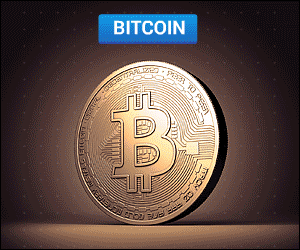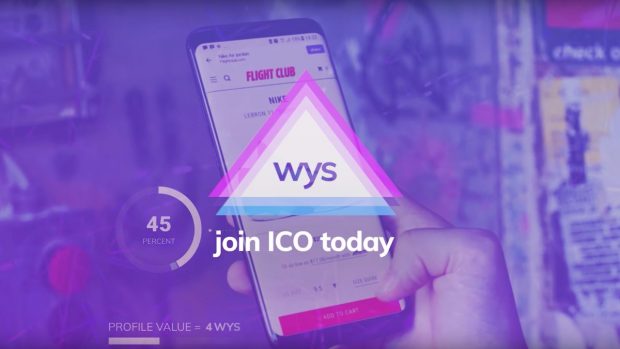Ask most people about the bitcoin bubble, and they'll probably have the same reaction: It's interesting, but it won't affect me. After all, they'll figure, they aren't investing in bitcoin, so if there is a bubble, and it does burst, they'll be just fine.
Well, maybe they should start worrying.
The market for cryptocurrencies—digital tokens used to transfer money between individuals' computers with minimal fees—has grown in stature in recent years and is increasingly entwined with broader financial markets as well, a trend that is likely to continue. Bitcoin is now traded by some of the institutional investors around which bond and stock markets revolve. The Wall Street Journal has reported that Goldman Sachs Group Inc. GS -0.02% is considering opening bitcoin-trading operations. Cryptocurrencies also are being used to raise capital by more companies.
As the bubble grows, analysts say, a crash has a greater chance of affecting investor sentiment about stocks, especially in the technology and financial sectors.
"Any product that blows up, there's always collateral damage," says Joe Kinahan, chief market strategist at brokerage TD Ameritrade . Tech and financial "companies who are relying on it for business, and those who have put a significant investment into the [blockchain] infrastructure would be the first" to suffer collateral damage, Mr. Kinahan says.
What has some market observers concerned is that in less than six months, bitcoin went from around $1,000 a token to $5,000. It is back now to $4,400. But in early 2016, bitcoin was trading at less than $400, bringing its 18-month gain to 1,000%. Consider that the math-based currency has yet to find a widespread use outside of speculation, and warnings of an implosion from J.P. Morgan Chase Chief Executive James Dimon and others in the financial establishment sound like more than curmudgeonry.
At around $150 billion, the market capitalization of bitcoin and other cryptocurrencies is up by a factor of roughly eight this year, according to the Cointelegraph website. If this growth rate continues, what's now a relatively small part of global investible assets could become a significant one, says Lorenzo Di Mattia, manager of hedge fund Sibilla Global Fund and a student of the history of speculation. By next year, Mr. Di Mattia expects the bubble to have inflated to the point where a pop could send a shock wave through the stock market.
Another analyst says bitcoin is at a similar stage in its development as the internet was in 1994, early in the speculative bubble. "What we're looking at is a new technology that people are still trying to understand," says Matthew Gertler, senior analyst and counsel at Digital Asset Research, which provides research to institutional investors on cryptocurrency issues.
Give bitcoin its due: Most people in finance agree that bitcoin and the blockchain, the open-access ledger that underpins the currency, were great inventions; even as J.P. Morgan's Mr. Dimon derides bitcoin as a "fraud," his bank is working on its own blockchain technology.
The bitcoin invention goes back to a 2008 blueprint signed by Satoshi Nakamoto and circulated on the internet. When a bitcoin owner transfers a token to another person, he or she posts the transaction to the blockchain, a simple account book floating on the internet, signing it with a unique string of numbers and letters. Bitcoin "miners" verify the transaction by running those numbers through formulas on high-powered computers, work for which they are paid mostly in newly minted bitcoin. For the users, fees are relatively low and transactions are—in theory—fraud-proof.
Clever as it is, however, bitcoin has shown no signs of replacing the dollar and other "fiat" currencies.
"For bitcoin to be a success, it needs to take a large part of various markets—remittances, payments, stored value," says Mr. Gertler.
Meanwhile, speculation in bitcoin—driven by hopes of its wider adoption—actually has diminished its usefulness as a means of exchange.
"Say you agree to buy a car [in bitcoin] and the price on Saturday is $32,000 and because of a bitcoin move, on Monday it's $41,000—people just can't live their lives like that," says Mr. Kinahan of TD Ameritrade.
Nvidia vulnerable
A crash in the price of leading cryptocurrencies would almost certainly hurt shares of Nvidia Corp. NVDA 0.29% , the chip maker that was the biggest percentage gainer on the S&P 500 in 2016, and its rival Advanced Micro Devices Inc., at least temporarily. Both companies have noted in their quarterly filings that cryptocurrency miners are a key source of demand for their graphic chips. Sales of chips to cryptocurrency sources represented 6.7% of Nvidia's fiscal second-quarter revenue of $2.23 billion.
"Anybody getting more than 5% of their business from crypto, it's starting to become significant and you could see their stock prices very quickly collapse" in the event of a bubble bursting, says Mr. Kinahan.
Spokesmen for Nvidia and AMD declined to comment for this article.
Other companies at risk include those in financial technology, or "fintech," one of the hottest parts of the tech sector. Shares of the exchange-traded fund Global X FinTech (FINX), a basket of such stocks, are up 43% in 2017.
"A lot of the innovation around financial tech has to do with blockchain these days," says Gil Luria, director of institutional equity research at brokerage DA Davidson. "So if the crypto asset values decline and that's associated with the blockchain innovations, there could be some carry-over effect." That possibility has some observers worried about the broader tech sector, as well, where investors are already uneasy about elevated valuations.
Another concern is the use of cryptocurrencies by some startups as a funding mechanism. Companies such as teen-oriented chat application Kik Interactive are using bitcoin-like systems to raise hundreds of millions of dollars from crowdsourced investors overnight, skirting initial-public-offering regulations and avoiding tough questions from venture capitalists. In many ICOs, or initial coin offerings, companies don't have a product yet when they sell these stakes, says Mr. Gertler.
Shares of the online retailer Overstock.com shot up recently after it said it was exploring a trading platform for ICOs. "To the extent there's any negative changes [in the value of cryptocurrencies], that could be to their detriment," Mr. Luria says.
Fears about fraudulent ICOs, meanwhile, caused Chinese regulators to shut down local bitcoin exchanges recently, causing a 20% retreat in bitcoin prices.
In 18 months, however, a new bitcoin crash could have wider ramifications.
That is when Spencer Bogart, head of research with cryptocurrency investment firm Blockchain Capital, estimates that the first bitcoin ETF will reach the market. The Securities and Exchange Commission rejected a high-profile ETF proposal from Cameron and Tyler Winklevoss earlier this year, citing the lack of regulation and transparency on underlying bitcoin exchanges. But LedgerX LLC recently received Commodity Futures Trading Commission permission to trade and clear bitcoin options and futures. ETF firm ProShares filed an application for long and short funds that would track bitcoin futures on the Chicago Board Options Exchange , which has said it would apply for approval of these derivatives.
An ETF's effect?
The appearance of an ETF would result in another surge in speculative activity as small investors wary of the high-tech bitcoin markets and institutional investors obliged to trade only registered securities finally have a way in, say Mr. Bogart and others.
"We see it on our desk every day," said Bobby Cho, at Cumberland Mining, a bitcoin-focused unit of Chicago proprietary trading firm DRW Investments LLC that works with institutional investors. "Many just go ahead and trade the underlying [tokens], but many more are just sitting on the sidelines waiting for a product…. There's a lot of pent-up demand for such a product."
One sign of that demand is the wild behavior of the closest thing to an ETF on the market, the over-the-counter-traded Bitcoin Investment Trust . GBTC -1.15% Owing to the trust's design, where shares must be owned by wealthy investors for a year before they can sell, there is a limited supply. This shortage became acute when fund manager Grayscale Investments LLC suspended creation of new shares in January while it sought SEC approval for an exchange listing (it abandoned that particular effort in late September). For about four months, the fund traded at nearly a 100% premium to its bitcoin holdings. Usually spreads between ETFs and the underlying indexes are measured in fractions of percentage points.
Currently, bitcoin markets have very limited links to stocks, bonds and commodities, allowing for some quarantine. An ETF would allow for the kind of "contagion"—the forced selling of seemingly unrelated assets—that bring on financial crises.
Joe Saluzzi, co-founder of agency brokerage Themis Trading, says that if the SEC approves an ETF based on bitcoin futures, it would sow the seeds for a market crisis.
"You're going to put a derivative on a derivative of an unregulated asset?" says Mr. Saluzzi. "That, to me, is a recipe for disaster."
Mr. Curran, a writer in Denton, Texas, is a regular contributor to Dow Jones Newswires and The Wall Street Journal. Email him at rob.curran@dowjones.com.





